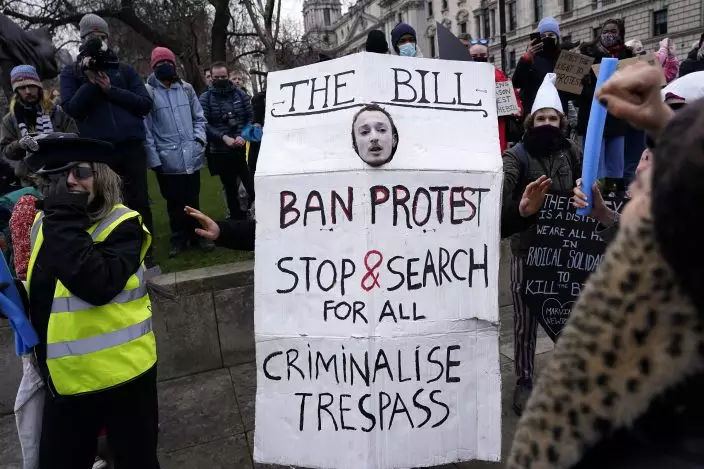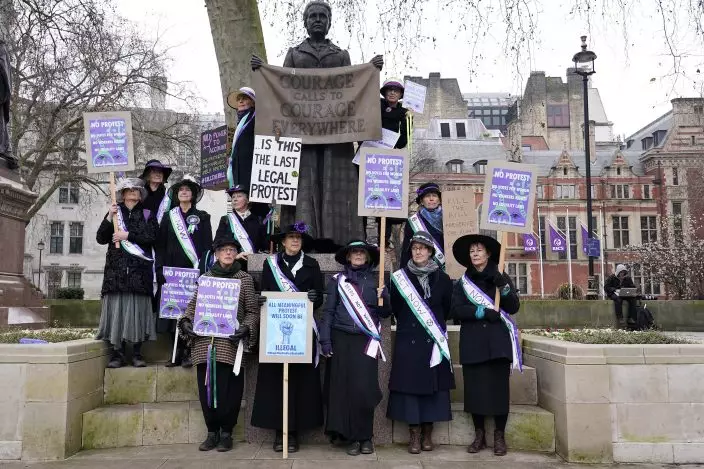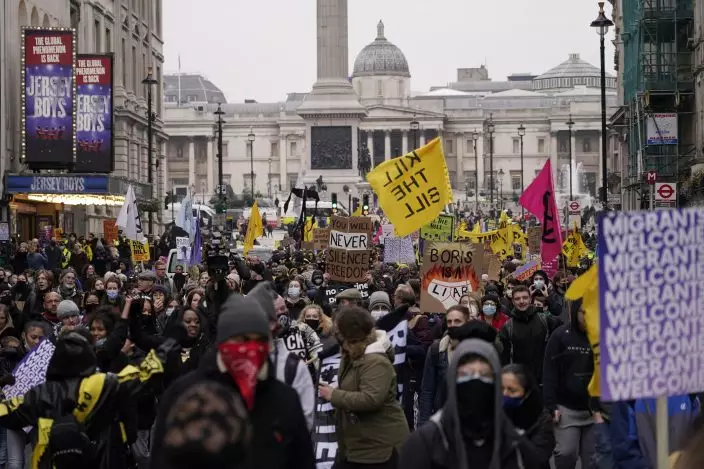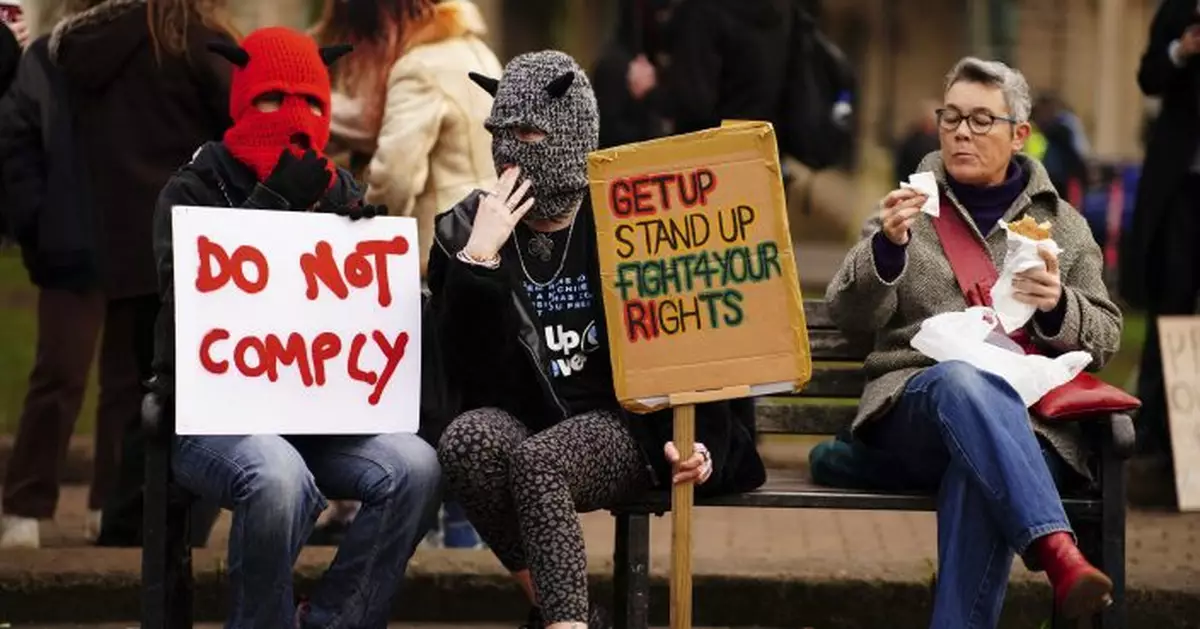Britain’s Conservative government has suffered a setback in Parliament in its attempt to give authorities stronger powers to curb peaceful but disruptive protests.
Parliament’s upper chamber, the House of Lords, late Monday rejected some of the most contentious provisions in the Police, Crime, Sentencing and Courts Bill. The defeated measures would give police officers the right to stop and search people at demonstrations without suspicion, allow courts to bar named individuals from attending protests and empower police to curb protests that are judged to be too noisy.
Home Office Minister Susan Williams said the bill — targeted at environmentalists who have blocked roads and glued themselves to commuter trains to protest climate change — protected the “law-abiding majority” from “the highly disruptive tactics employed by a small number of people.”

A protester holds a placard during the 'Kill the Bill' march on the national day of action in London, Saturday, Jan. 15, 2022. Protesters march in London, Bristol, Coventry, Newcastle, Liverpool, Sheffield, Plymouth and more ahead of the Lords' final vote on the bill on January 17. (AP PhotoAlberto Pezzali)
But civil liberties groups say the proposed measures violate long-held freedoms of assembly and speech. Thousands of people attended “Kill the Bill” protests across Britain in recent months to oppose the legislation.
Brian Paddick, a Liberal Democrat member of the Lords and former senior police officer, said the government plans were “reminiscent of Cold War eastern bloc police states.”
The move to put noise limits on protests has drawn particular criticism. Labour Lords member Vernon Coaker said “making a noise is a fundamental part of the freedom to protest properly in a democracy.”

Protesters show placards in Parliament Square during the 'Kill the Bill' march on the national day of action in London, Saturday, Jan. 15, 2022. Protesters march in London, Bristol, Coventry, Newcastle, Liverpool, Sheffield, Plymouth and more ahead of the Lords' final vote on the bill on January 17. (AP PhotoAlberto Pezzali)
The Conservative government can try to reinsert some of the provisions when the bill goes back to the elected House of Commons, where the party has a majority. Other measures, which were inserted into the bill by the government at a late stage in its passage through Parliament, can’t be reintroduced.

Protesters march during the 'Kill the Bill' march on the national day of action in London, Saturday, Jan. 15, 2022. Protesters march in London, Bristol, Coventry, Newcastle, Liverpool, Sheffield, Plymouth and more ahead of the Lords' final vote on the bill on January 17. (AP PhotoAlberto Pezzali)


